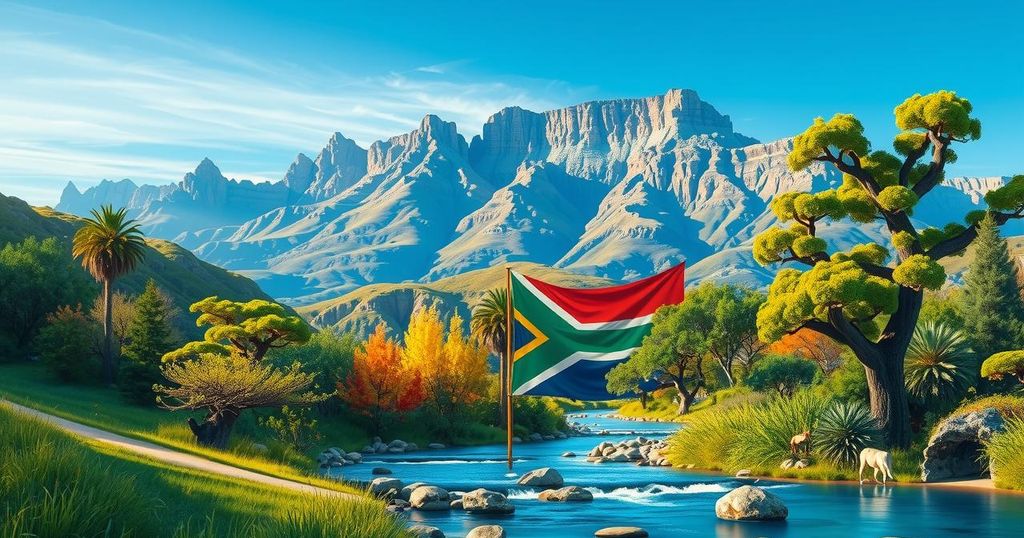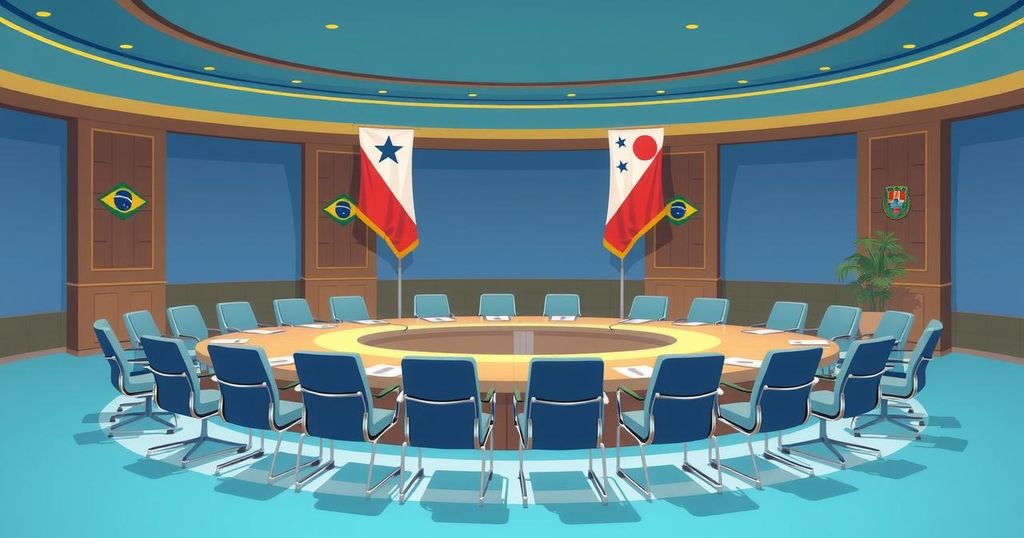South Africa commemorates Freedom Day on April 27, marking its first democratic elections in 1994. The nation, led by President Cyril Ramaphosa, has formed a Government of National Unity, bringing cautious optimism amid political challenges. With projected GDP growth of 1.5% and ongoing efforts to strengthen international partnerships, South Africa showcases resilience and a vibrant cultural heritage, navigating opportunities for economic development while facing significant hurdles.
April 27th holds significance for South Africa as it commemorates Freedom Day, a day that captures the spirit of transformation within this nation. It marks the anniversary of the first democratic elections in 1994, which effectively ended the apartheid regime and ushered in a new era characterized by equality and national unity. This year’s celebrations not only reflect on the nation’s journey but also highlight its dynamic culture and robust economy.
South Africa is currently at a crucial juncture politically. Following the establishment of a Government of National Unity (GNU) in June 2024, under President Cyril Ramaphosa’s leadership, there has been a notable shift in governance focused on stability. Despite ongoing political hurdles, the GNU has garnered positive reactions from financial markets, suggesting a glimmer of hope for economic reforms.
Economically, South Africa remains the largest on the African continent. The International Monetary Fund (IMF) has predicted a modest GDP growth of 1.5% for 2025, a slight uptick from the prior year. Key sectors like financial services are pivotal in propelling economic activity. Nevertheless, issues such as infrastructure constraints and power supply problems continue to impede faster progress. Inflation stood at 4.4% in 2024, while unemployment remained severe at 31.9% by the end of that year.
The nation also grapples with a staggering 77.4% debt-to-GDP ratio, coupled with noticeable income inequality. Nonetheless, South Africa’s influence within Africa’s economic landscape persists. Geographically, it is positioned at the southernmost point of Africa, blending stunning natural beauty with a profound historical narrative. With a population surpassing 60 million, it is noted as Africa’s most industrialized and technologically adept nation.
South Africa is home to 12 UNESCO World Heritage Sites such as Robben Island and the Cradle of Humankind, which emphasize its historical and cultural richness. Landmarks like Table Mountain, known for its breathtaking views, and Kruger National Park, one of Africa’s largest wildlife reserves, attract global tourists.
Culturally, the nation is a mosaic of influences from indigenous African groups, European settlers, and Indian communities, giving rise to a unique national identity marked by its 11 official languages. Sports, particularly football, rugby, and cricket, play a vital role in uniting the population across various cultural frontiers.
Looking forward, South Africa and Thailand recently cemented their economic relations through a significant agreement to import 300,000 metric tonnes of rice valued at approximately $156 million. This trade pact exemplifies the increasing economic interdependence between the two countries. Thailand exports a variety of goods including automobiles, electronics, and agricultural produce, while South Africa counters with minerals, wines, and fresh produce. Their collaboration also extends to tourism, education, and cultural exchanges.
As South Africans celebrate Freedom Day, the nation reflects on both its challenges and its potential. With resilient determination and a diverse economy bolstered by rich cultural assets, South Africa is poised to forge a promising future while nurturing international partnerships. The global community watches closely as this remarkable nation continues on its path of transformation and renewal.
In summary, as South Africa celebrates Freedom Day, a day symbolizing its democratic transition, the country is faced with both challenges and opportunities. With the establishment of a Government of National Unity, cautious optimism permeates the political landscape, alongside economic prospects for growth despite existing structural hurdles. The nation’s rich cultural tapestry and iconic landmarks further highlight its significance on the global stage, while expanding partnerships with countries like Thailand signal a commitment to continued development and cooperation. South Africa stands poised for a transformative future, inspiring hope and anticipation worldwide.
Original Source: www.nationthailand.com




